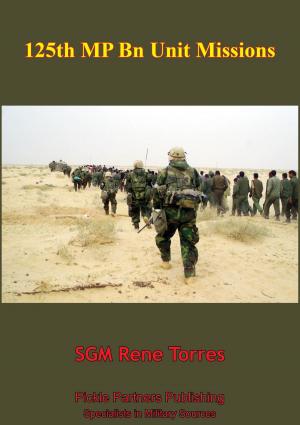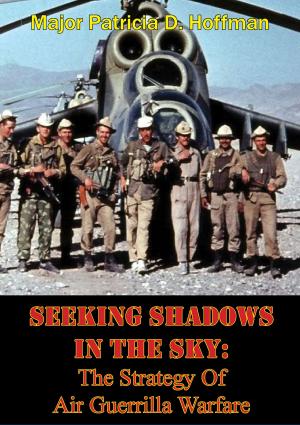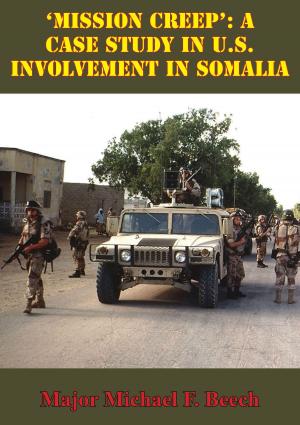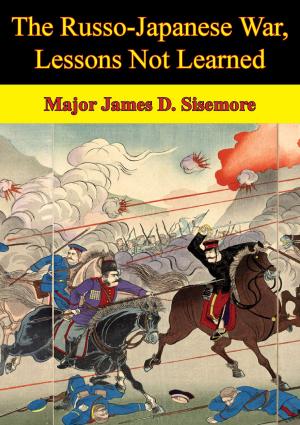OPERATION FORAGER: Air Power in the Campaign for Saipan
Nonfiction, History, Germany, European General, Military, United States| Author: | Lieutenant Commander Mark D. Tate USN | ISBN: | 9781786250865 |
| Publisher: | Tannenberg Publishing | Publication: | November 6, 2015 |
| Imprint: | Tannenberg Publishing | Language: | English |
| Author: | Lieutenant Commander Mark D. Tate USN |
| ISBN: | 9781786250865 |
| Publisher: | Tannenberg Publishing |
| Publication: | November 6, 2015 |
| Imprint: | Tannenberg Publishing |
| Language: | English |
This study is an examination of historical data to determine the effectiveness of air power in supporting operations during the battle for Saipan during June and July 1944. The battle was fought during a critical phase of World War II, over an island whose strategic significance would become manifest during the war’s closing months. The Japanese correctly believed that losing Saipan would mean the beginning of the end for the Empire.
The study determines that the role of air power was critical in protecting the amphibious force, defeating the Japanese fleet, decimating land-based Japanese air forces, and supporting the troops on the ground. Air power at Saipan created an environment which made an American victory inevitable.
The study examines the assets available and their effectiveness in various types of air support employed at Saipan, and looks at joint air employment. It concludes that anti-air combat and airfield interdiction were highly successful, while fleet action and close air support were moderately successful. It examines factors involved and the results produced. It concludes that joint operations were conducted, but that these were operations of coexistence rather than real coordination.
This study is an examination of historical data to determine the effectiveness of air power in supporting operations during the battle for Saipan during June and July 1944. The battle was fought during a critical phase of World War II, over an island whose strategic significance would become manifest during the war’s closing months. The Japanese correctly believed that losing Saipan would mean the beginning of the end for the Empire.
The study determines that the role of air power was critical in protecting the amphibious force, defeating the Japanese fleet, decimating land-based Japanese air forces, and supporting the troops on the ground. Air power at Saipan created an environment which made an American victory inevitable.
The study examines the assets available and their effectiveness in various types of air support employed at Saipan, and looks at joint air employment. It concludes that anti-air combat and airfield interdiction were highly successful, while fleet action and close air support were moderately successful. It examines factors involved and the results produced. It concludes that joint operations were conducted, but that these were operations of coexistence rather than real coordination.







![Cover of the book General Leemy’s Circus: A Navigator’s Story Of The Twentieth Air Force In World War II [Illustrated Edition] by Lieutenant Commander Mark D. Tate USN](https://www.kuoky.com/images/2015/november/300x300/9781786253330-G0nj_300x.jpg)

![Cover of the book Enemy Coast Ahead [Illustrated Edition] by Lieutenant Commander Mark D. Tate USN](https://www.kuoky.com/images/2015/november/300x300/9781786257574-db24_300x.jpg)


![Cover of the book Hitting Home - The Air Offensive Against Japan [Illustrated Edition] by Lieutenant Commander Mark D. Tate USN](https://www.kuoky.com/images/2015/november/300x300/9781786252432-Mh6l_300x.jpg)

![Cover of the book Weapon Of Denial: Air Power And The Battle For New Guinea [Illustrated Edition] by Lieutenant Commander Mark D. Tate USN](https://www.kuoky.com/images/2014/august/300x300/9781782898887-S21c_300x.jpg)
![Cover of the book Spitfire! The Experiences Of A Fighter Pilot [Illustrated Edition] by Lieutenant Commander Mark D. Tate USN](https://www.kuoky.com/images/2015/november/300x300/9781786257529-H3d2_300x.jpg)